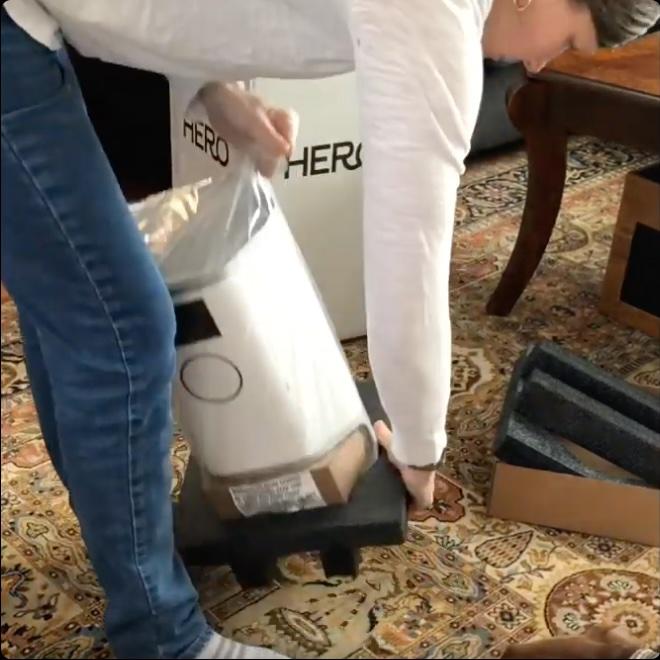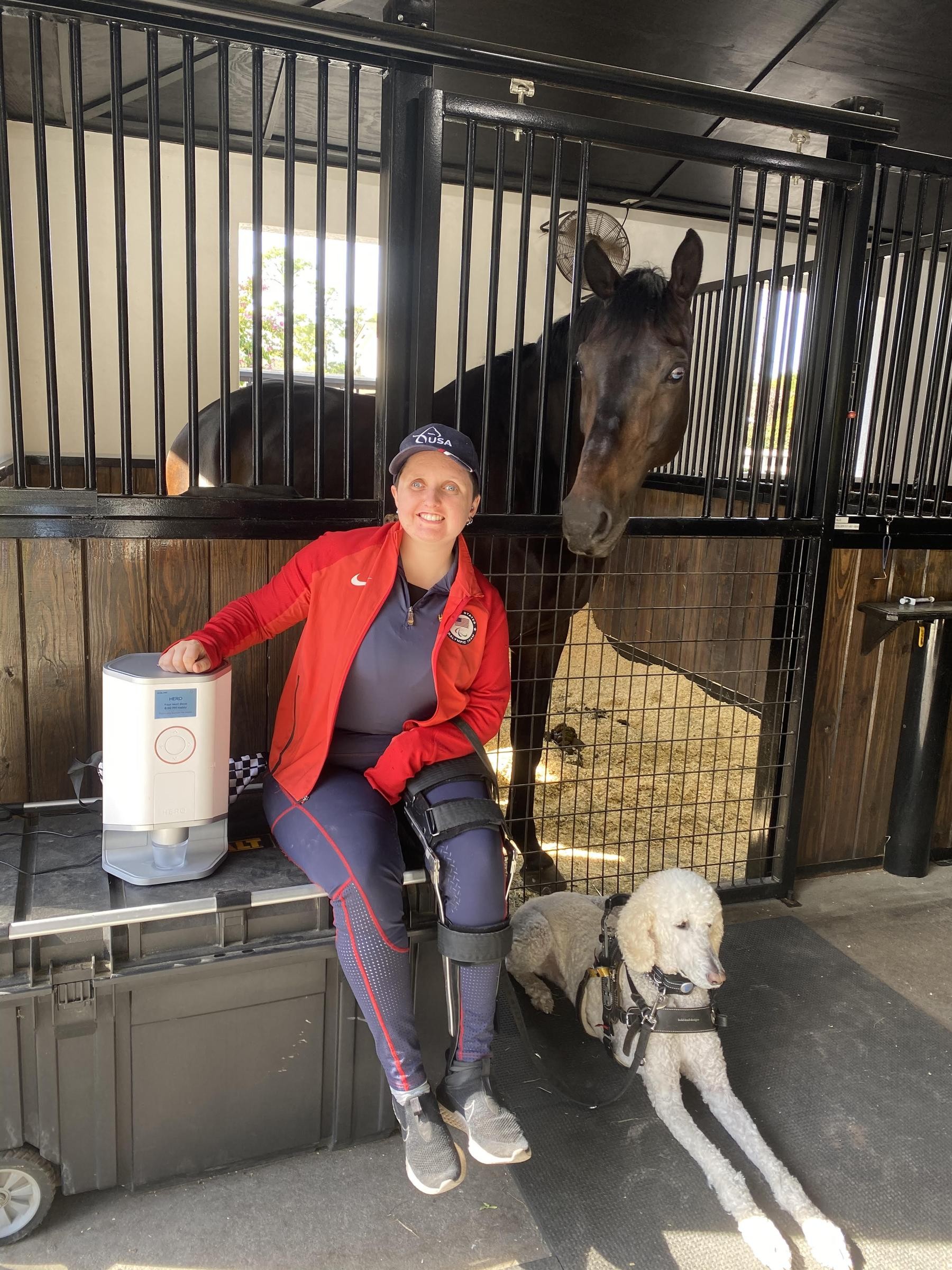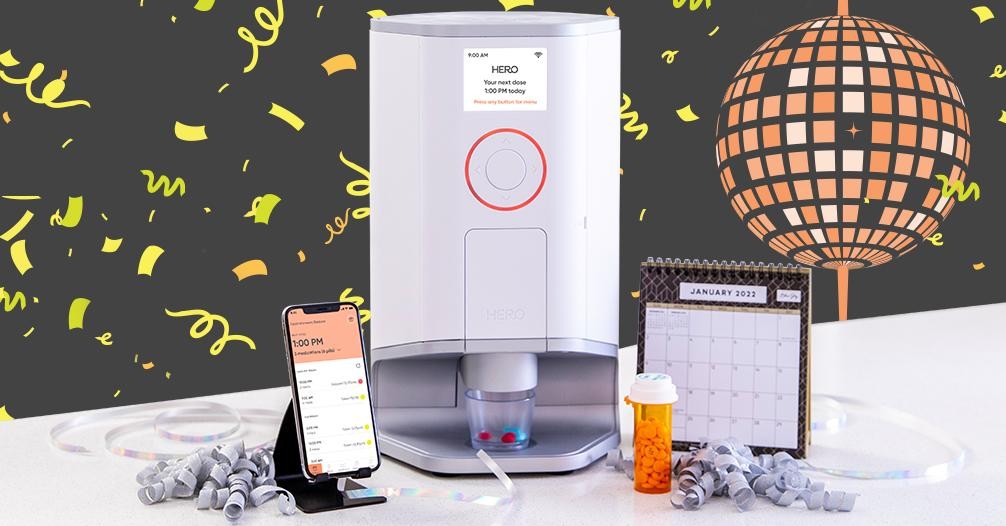Meet Our Members: Emily Northington
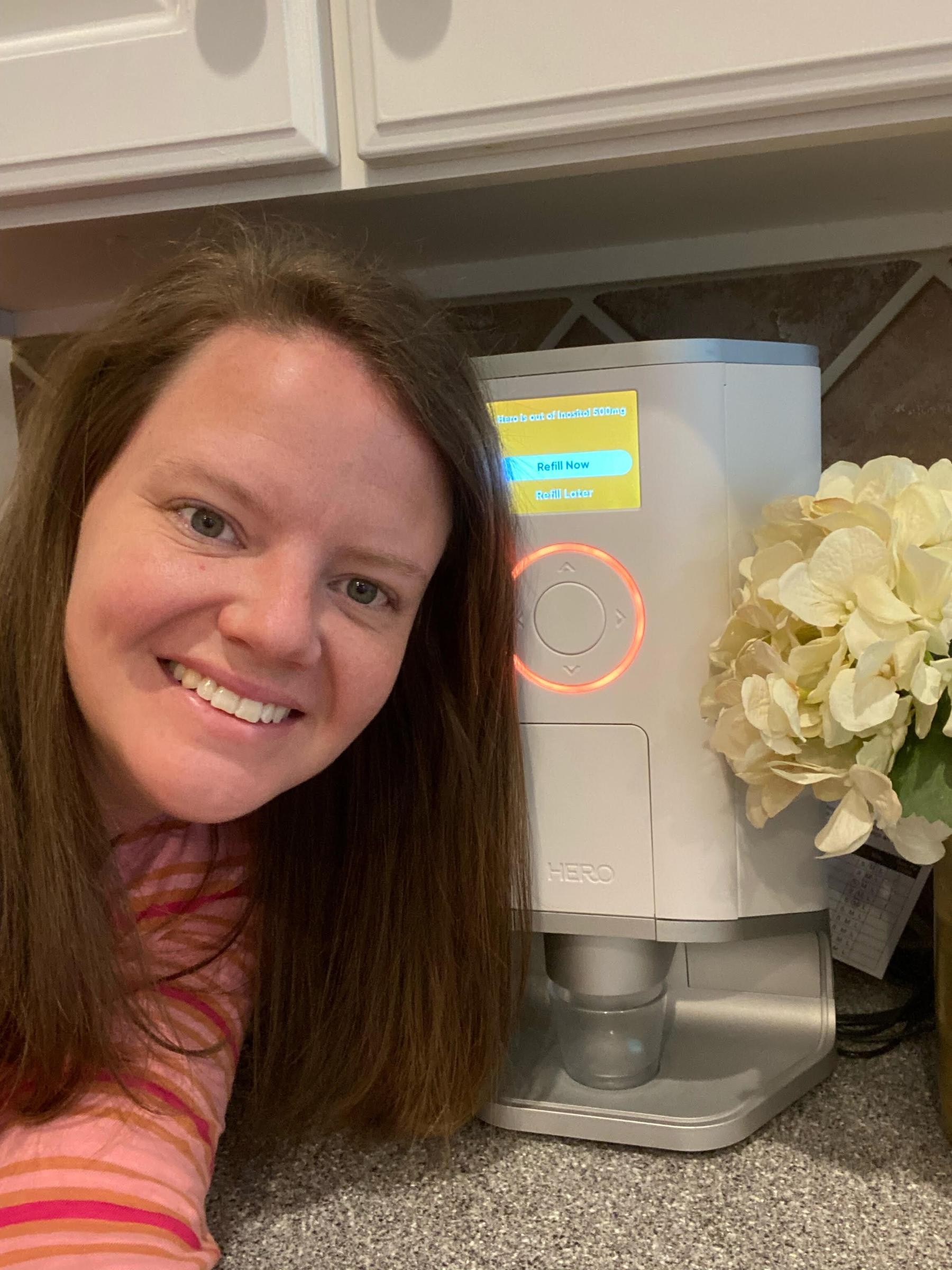
Discover how former preschool teacher Emily uses Hero to manage her multiple mental health conditions and to improve her life as a wife and mother to her two young children.
Hero Team:
Could you tell us a little bit about yourself, your background and your high-level experience with Hero thus far?
Emily Northington:
I live in Atlanta, Georgia, but I'm originally from Huntsville, Alabama. I have a Bachelor's in Early Childhood Education, so I worked as a preschool and fourth grade teacher for five years before I had my two children. I've been married for 10 years to my husband Ryan, and we moved here in 2014 after I graduated from Alabama.
I have a lot of mental health issues that run in my family. I have depression and acute anxiety. We also believe that I have something called reactive attachment disorder because I had a traumatic childhood and I also have PTSD and ADHD. I have a lot going on, and I also have thyroid issues and low iron.
So, there's a lot of reasons that I need to be putting stuff into a Hero. And because I have ADHD and I can be really flighty, having something that beeps at me all the time like Hero has given us a new life as a household. I've now been able to remember to take my medication every day at the right time and the correct amount of doses.
Hero Team:
What was your medication routine like before using Hero? What were some of the challenges you endured as a patient?
Emily Northington:
I take 15 supplements and medications. So, it amounts to about 30 to 40 pills every morning – probably closer to 40 if I take all that I'm supposed to take – and it's just kind of always been that way my entire adulthood.
The ideal situation would have been that I was taking the exact same dose at the exact same time, every single day. That I was 100% compliant 100% of the time. But in reality, I would take them all once every three months. That's when I would remember to do it and I might have one good week, and then I wouldn't remember to take them for two or three months at a time. And then I’d say, "Oh crap. I feel terrible. I need to take these meds. What am I doing?" And my doctors would say, "You really need to take it. you need to find a way."
I tried apps to remind me and I tried setting alarms on my phone and nothing worked. It wasn't that I didn't want to take them, I just could not remember what it was or where they were or they'd end up in my car or in a suitcase when we traveled and then they wouldn't come out of the suitcase until two months after we got back from the trip. It was not at all organized or regimented in any way.
Hero Team:
Did you try any other systems like pill boxes or other more manual processes?
Emily Northington:
I tried the regular old pill boxes that you can get where you flip the top up. I also tried the ones that you twist. I had my husband stay in charge of it, but nothing worked out. The pills would pop out of the pill organizer, or I would lose it and just not know where it was, or I wouldn't refill it. It just didn't work to do it that way.
Hero Team:
How does Hero compare to some of these earlier methods that you've tried? Has it helped improve any of the different stressors that you mentioned?
Emily Northington:
Hero has just really made all of our lives better. Our device is out on the kitchen counter, it's very aesthetically pleasing. The chimes go off and remind me, and I have notifications come up on my phone. I also increased the volume and the frequency with which Hero reminds me. I have it beep as many times as possible, as frequently as possible. I love having that reminder, having it there and it beeping until I take it. I have to go over to physically touch the medicine cup, so I take it since I’m already there.
Just being properly medicated and compliant for maybe six months, I feel better than I ever have, which is still not amazing, but it's still better than I've ever felt.
This machine has been magical for our family. Even though I'm not elderly and I'm not someone who has a caregiver who needs to have that medication to take care of them, it's just been something that we needed. And I'm so glad I found it.
Hero Team:
How has your mental state and relationships improved since sticking to your medication regimen?
Emily Northington:
With my ADHD, I'm usually really messy. I forget things a lot in my unmedicated state. I get hyper-focused and I'll just focus on one project for hours at a time and I'll forget to care for my children, which is absolutely awful. And just admitting it even makes me want to cry.
And then you have to add the anxiety about everything that's happening and the depression, because I have Manic Depressive Disorder. I was diagnosed at 18, but we think I've had it my whole life.
I would get what I call “Depression House,” which is where the entire house is coated in garbage that I would just leave places because I couldn't get up the energy to take care of my kids, and definitely couldn't get the energy to pick up after myself.
I wasn't making good health choices because I was more impulsive and less motivated to choose correct things for myself to be where I needed to be.
By being 100% compliant with my medication, I'm able to function better. And my husband is able to function better because the house is not “Depression House.”
Now, I'm not just focusing on one project instead of taking care of everything else that needs to be done and prioritizing, and my children are happier because they have their mom back.
Before Hero, my husband would also try to gently call me back to reality when I was hyper-focusing on something, and I would always snap because of my ADHD. If I'm hyper, it's like sleep walking.
Now, we don't have random fights because he tried to get my attention, which is something that we used to do 10 or 11 times a day. He was like, "Hey, can I ask you this?" That's a normal human situation to be in but if I was focusing on something and he tried to say, "Hey, I need to ask you a question." Then I would just lose it because I was agitated. And that hasn't happened in a really long time.
Now that I have Hero, we are in the process of healing from before. Just the fact that there's light at the end of the tunnel and that this device exists has really enhanced our lives.
Hero is magical. It really is. It just feels like we got this unicorn to sit on the kitchen counter and tell me to take my medicine. It's fantastic.
Hero Team:
That's awesome to hear. What are your husband’s opinions of the Hero device and its role in your wellbeing?
Emily Northington:
He knows that it's important. At first, I was trying to explain to him the costs of Hero. He tried to convince me that we didn't need this subscription. But after we had it a couple more months, he's like, "I'm so glad that we didn't cancel. I see now that the costs of Hero is a priority that we need to make. If we don't pay for your medication to be dispensed to you in an appropriate way, and I start traveling again, you're not going to be medicated."
We're getting ready to go on a big family vacation with his whole family next week, and he even asked, "You're going to pack the Hero. Right? Because we can't go to Florida if we don't have Hero."
He recognizes that this is a very important thing. He's set up as a caregiver on my account, so if he's out in the office in our backyard and he gets that email, he sticks his head in and says, "Take your medicine." Then he goes back outside.
I'm so glad that this is in our lives, and I'm happy to see that he recognizes that because he's a very analytical kind of cut and dry person. As corky and as bubbly as I am, he's the opposite. It creates balance between the two of us, but for him to say that it’s important, and for him to come out and just without prompting tell me that, is pretty telling.
Hero Team:
Which of the Hero’s features is your favorite, and why?
Emily Northington:
That's a really good question. I love that when you put the cup back, it senses that the cup is there, so you don't have to go through and say that you took your medication, which is so user-friendly.
And then I love that it has reminders. It doesn't just dispense the pills and just hope that you take them. If it knows that you haven't taken it yet, it keeps beeping. It's like, "Hey, I'm here. You haven't done this yet. You bought me for a reason. Come and take your medicine." It's really helpful in that way too.
Hero Team:
That's great to hear. Lastly, in your opinion, what makes Hero worth it?
Emily Northington:
For me, it’s knowing that my children won't have memories of growing up with a mother like I had, that they won't have memories of that kind of craziness or that kind of trauma, or someone being that unkind and mean to them, and that they won't ever have to worry about. It just won't be a problem for them, and my husband won't know the pain that my father knew of a woman going insane and leaving him.
My children won't have to know that their mom could have gotten help, but she didn't. Their mom could have done this but she didn't. No. They can know that Mom is seeking help. Mom has medication and Mom has tools that will help her stay medicated and never get to the point that she doesn't care. They'll always grow up knowing that I love them.
That's what makes it worth it.
Complex med schedule? We solved it.
Hero’s smart dispenser reminds you to take your meds and dispenses the right dose, at the right time.
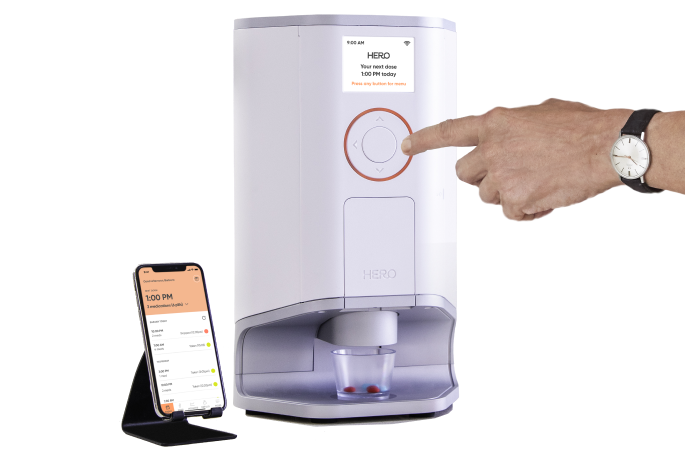
The contents of the above article are for informational and educational purposes only. The article is not intended to be a substitute for professional medical advice, diagnosis, or treatment. Always seek the advice of your physician or other qualified clinician with any questions you may have regarding a medical condition or its treatment and do not disregard professional medical advice or delay seeking it because of information published by us. Hero is indicated for medication dispensing for general use and not for patients with any specific disease or condition. Any reference to specific conditions are for informational purposes only and are not indications for use of the device.

